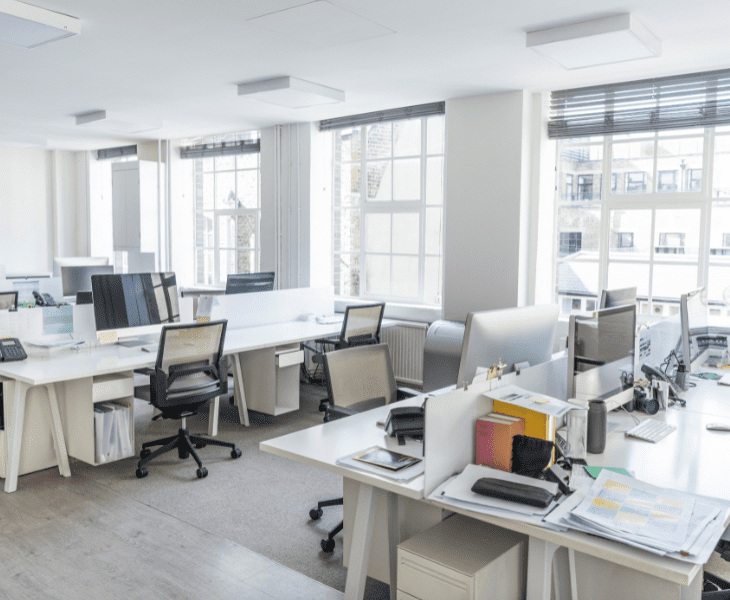
As a business owner, one of the big decisions you’ll face is whether to buy or rent your property. This choice can make a big difference to your finances, flexibility, and even your day-to-day operations.
For businesses in West Sussex, where the commercial property market is robust but varies significantly, this decision can feel especially difficult. Let’s look at the ups and downs of both options to help you make the best choice for your business.
Buying commercial property
Pros of Buying
Long-Term Investment
Owning commercial property is a major long-term investment that can appreciate over time. Especially in a steady market like West Sussex, your property could gain value, which helps build wealth for the future.
Equity Growth
Each mortgage payment builds equity – so essentially you’re creating a valuable asset. Down the line, this equity could come in handy if you need to expand or invest in something else.
Control Over Property
Ownership gives you freedom to customise your space. Need special features, or want to remodel? No need to get a landlord’s approval. This can be a game-changer for businesses that need a very specific setup.
Predictable Costs
With a fixed-rate mortgage, you know what to expect each month, which makes planning easier. This stability can be valuable if you’re trying to avoid sudden cost increases that often come with rent hikes.
Rental Income
If the building has extra space, you could lease it out, which brings in extra income. In popular West Sussex locations, demand for rental space is high, which can help cover some of your mortgage costs.
Cons of Buying
High Upfront Costs
Buying requires a big upfront payment. The deposit, legal fees, and potential renovations all add up quickly. This can tie up cash you might want to use for other business needs.
Responsibility for Maintenance and Repairs
When you own, maintenance is your responsibility. From small fixes to major repairs, any upkeep can take time and add to your ongoing costs.
Market Risk
Property values can fluctuate, so there’s always some risk. A downturn in the market could affect your property’s value, potentially impacting your business’s finances.
Lack of Flexibility
Once you own a property, moving becomes much harder. If your business grows or you want to shift locations, selling and buying again can be time-consuming and costly.
Renting Commercial Property
Pros of Renting
Lower Upfront Costs
Renting is much more affordable upfront. Typically, you’ll only need a deposit and a few months’ rent, leaving you with more cash on hand to invest in other areas of your business.
Flexibility
Renting makes it easier to adapt to changing needs. If you grow out of your current space, you can relocate without the hassle of selling property. For fast-growing or newer businesses, this flexibility can be a huge advantage.
Less Maintenance Responsibility
Most leases put maintenance responsibilities on the landlord, meaning you can focus on your business while they handle repairs. This is great if you want to avoid the extra time and cost involved with property management.
Access to Premium Locations
Renting often allows you to be in popular areas that may be out of your price range to buy. If you need high foot traffic or easy access, renting could give you the perfect spot without a massive financial commitment.
Cons of Renting
Rising Rental Costs
Rents can go up, sometimes significantly. Many leases have annual rent reviews, which can lead to unplanned increases and affect your bottom line.
Lack of Equity Building
With rent, you don’t build any ownership in the property. You’re paying for space but not creating an asset for your business.
Limited Control Over Space
Leases often have rules that limit what you can do to the space. This could mean restrictions on remodelling or even what you can use the space for.
Potential Disruptions
You may have to move if the landlord decides to sell or repurpose the property. This can be disruptive and force you to find a new location unexpectedly.
Making the right choice for your business
When you’re deciding, think about where your business is today and where you want it to be in the future. Established businesses that need stability and control might benefit more from buying, while new or fast-growing businesses may prefer the flexibility of renting.